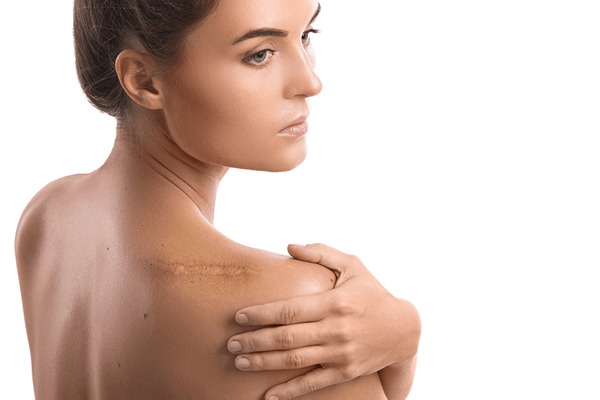What is Scar and Deformities Revision Surgery?
Scar and deformities revision is a procedure that plastic surgeons commonly perform with the goal of minimizing the appearance of a scar. The goal of scar revision surgery is to make the scar as smooth as possible and visually less noticeable.
Patients may develop scars or deformities after an accident, skin injury, or surgery. The remaining scars or deformities can be quite distressing for individuals, especially if the scars are on the face. Facial injuries or deformities may require facial reconstruction prior to scar revision surgery.
Reconstructive plastic surgery is performed to address and correct facial and body abnormalities caused by birth defects, injury, and disease. The goal of reconstructive plastic surgery is to repair the injury or deformity and to also improve the appearance of the deformity or scars that result from the surgical repair.
What is Facial Reconstruction?
Dr. Leach performs reconstructive surgery to correct congenital deformities and trauma to the face which can occur from dog bites, vehicular accidents, physical assaults, injuries from sports, and more. Facial injuries that require reconstruction commonly are the eye socket, cheekbones, nose, eyes, or forehead. The injury or lacerations cause scars and in some cases nerve damage.
Facial reconstruction and facial scar revision is a complex and involved procedure that requires the knowledge, skill and experience of a board-certified plastic and reconstructive surgeon.
Who is a Candidate for Scar Revision Surgery?
Scar revision surgery is a specialized surgery for individuals that are unhappy with scarring on their face or body. People of any age may be a candidate for scar revision surgery if they are bothered by a scar or scars on their body.
Dr. Thomas Leach, board-certified plastic, and reconstructive surgeon, advises his patients that during your consultation he will evaluate your scar(s) and discuss why you want the surgery, your medical history, and which type of treatment will best address your scar revision goals. Multiple treatment sessions may be required.
What are the Different Types of Scars?
The different types of scars are classified as follows:
- Hypertrophic scars are thick, red, and raised and often form on a wound site.
- Keloids are thick clusters of scar tissue. Keloids are larger than the incision or wound that caused the scars. Keloid scarring can be painful or itchy. They are more common on individuals with darker skin.
- Contractures are more difficult type of scarring as they occur after a large area of the skin is lost, typically after a burn. These types of scars restrict skin movement.
- Subtle scars are noticeable discolored skin or surface irregularities. These commonly include acne scarring and scars from minor injuries.
How are Scars Treated?
The type of recommended treatment depends on the type of scar, along with the size, shape, and location of the scar. Some scars and deformities can be treated with lasers or other minimally invasive procedures. Other scars and deformities require surgery. After Dr. Leach has evaluated you scar(s) he may recommend one of the following treatments:
- Scar revision can be used for many unfavorable scars. They are simply excised and then meticulously reclosed using plastic surgery techniques.
- Minimal Surface treatments can be used to smooth the surface of the scar, reduce any pigmentation, and stimulate new growth. Treatments using laser or light technology, dermabrasion, or chemical peels are effective.
- Injectable treatments using fillers can also temporarily improve the appearance of scars, especially sunken scars.
- Skin revision surgery involves utilizing skin grafts or skin flaps to address skin damage, especially after skin cancer. (Learn About Surgical Reconstruction After Skin Cancer Surgery)
- Z-plasty involves cutting along the side of the scan and creating angled flaps so the skin and direction of the scar can be repositioned.
Who Should You Choose for Scar Revision Surgery?
Board certified plastic and reconstructive surgeons are specifically educated and trained to address your scars whether they be due to trauma or a congenital deformity. Dr. Thomas Leach, located in Princeton, NJ, is a trusted board-certified plastic surgeon with years of experience in restoring and supporting his reconstructive patients.
Contact our office today to schedule your personalized consultation with Dr. Leach.







